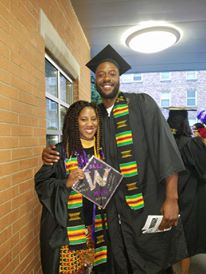Why doesn’t my time as a scholarship athlete at both the University of Washington and Portland State University count towards recreational experience on a job application? The amount of time put into the game of basketball should count for some type of experience other than, being able to list that I know how to work in a team environment.
I look at some of the jobs that I have applied for with the City of Seattle, and think to myself, there is no way that I won’t get a call to interview for this position.
Now I know, everyone feels like that, and everyone should feel like that, but for some reason I am beginning to think that the 9 years I played basketball while in college and professionally count for very little, even when applying for recreational positions.
It really makes no sense, when one considers the fact that basketball is a recreational sport.
Just focusing on college athletics, it has to be understood that players are not just playing a sport. They are also learning how to operate a team, as they are coached by professionals, and they learn everything the coaches teach. More importantly, the athletes are watching the coaches, and they learn everything coaches do. Most athletes can run a recreational program with no problem.
When I look at my situation, the thing that frustrates me is that, on top of that experience, I also have a college degree, which would seem to make me that much more qualified for positions that require both recreational experience and a college degree in a related field to whatever the program emphasizes.
There was an article written in the New York Times a few days ago, that brings up a very good point about why playing at the collegiate level should carry some weight on the academic side. That would help former athletes who are applying for jobs in fields that require related experience.
Pielke Jr., a professor in the Sports Governance Program, at the University of Colorado wrote the article, titled, “Why Not a College Degree in Sports?”
He talks about the potential of bringing sports and academics closer together on college campuses, by saying:
Academic programs in sport can train the next generation of sports leaders, and at the same time help universities bring athletics closer to their academic mission. Universities might look beyond the debate over college athletes as professionals, to seeing athletics as a worthwhile profession.
There needs to be something that ties academics and athletics together in order for former collegiate athletes to transition into the work force, without being penalized for having a lack of experience, or lack of credentials in a particular field.
